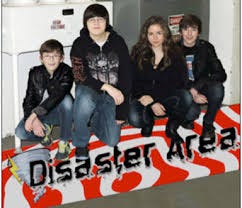Happy 2021! Despite being only the next number in a system ordered up by a 16th century guy named Greg, this year will be totally different. I promise. I don’t promise. Every tv channel should have showed this on New Year’s Eve.
I’ll be on KUOW in Seattle today at noon pacific, 3pm eastern, talking with my old pal Bill Radke. You can tune in or they’ll probably have it on their webbed-site shortly after.
We’ll be talking about what mental healthcare might look like in a post-covid world. The government has loosened a lot of the regulations having to do with teletherapy during covid so that more people can get help and providers have a lot more flexibility to run their practices. That means “discretionary enforcement” of privacy rules. For instance, a therapist isn’t really supposed to use Zoom for a session because it’s not 100 percent compliant with HIPAA standards but whoever is in charge of enforcing such rules now may use discretion as to whether or not to do so (meaning it’s fine, go ahead and use Zoom). Will these rules be tightened after the vaccine? Dunno but doubtful because people like the convenience of home therapy.
More people getting a more convenient way to get therapy during a time when therapy is desperately needed and offices aren’t safe. But! Circle back to that idea of privacy. If you’re sitting in a therapist’s office, the conversation will stay in that room. If it happens online, it’s vulnerable to cyber attacks because it’s now online. Bad guys want your personal information. It’s profitable. If enforcement of privacy rules is more slack in the quest for convenience, the privacy practices of providers will be looser too because there are no consequences to being lazier about security. So it’s set up for disaster.
And we hope disaster doesn’t happen and the baddies are thwarted. But! There is SO MUCH teletherapy going on right now so the odds keep getting worse. I talked to my friend Dr. Ken Duckworth, medical director for NAMI, yesterday and he said before covid teletherapy was like a dirt road and since March it’s become a superhighway. Many therapists he knows are giving up their offices and just going online only. Why pay a thousand bucks a month for an office when you can stay home?
Obviously, it’s great news if more people are getting help. We want this. And Ken said that people are much more likely to show up for online appointments. It’s pretty much 100% attendance, whereas in-person visits have a rate closer to 80%. But it really is the wild west on the internet. Technology booms and blossoms long before regulation catches up with it. We’re in that boom now and the sheriff has declared discretionary enforcement of the laws. Therefore: yikes.
I’m also planning to talk about the rise in not-quite-therapy available online and through apps. Talkspace is one of the biggest online services providing… errm… I’m not sure whether to call it therapy. Essentially, you sign up, it ain’t cheap, and you can then text(!) with a licensed therapist, who responds to you at least once a day. I’m an old person who remembers when Joshua Tree came out so maybe I’m set in my ways but a series of text messages doesn’t feel like actual therapy. Inspiration, maybe. Perhaps support. But therapy? Really?
Indeed, the company’s user agreement used to say, “This Site Does Not Provide Therapy. It provides Therapeutic conversation with a licensed therapist.” Odd use of capitalization.
Now the agreement says this: “Talkspace does not hold itself out as your direct provider of therapy services as that is the role of your licensed, network accredited Provider.”
If you search for Talkspace on Google, you get a link there with this headline: “Talkspace - #1 Rated Online Therapy, 1 Million+ Users”.
Does this posit that “online therapy” is distinct from “therapy”? Help me?
Talkspace of course claims to take your privacy very seriously but they are not subject to the same regulations that the therapist down the street has to deal with. They can’t get in the same trouble if they screw it up.
If the fine print doesn’t bother you, if the “therapy vs. not literally therapy” doesn’t trouble you much and you think it’s close enough, and if the idea that you’ll be in contact with a licensed therapist even if it’s via text gives you comfort, it might be a good thing to try. I won’t recommend it or condemn it (or any kind of treatment, find your path, my brothers and sisters). But if you see some yellow or red flags in there, you might want to check them out.
The burden’s on you.
And that's the thing: the burden of checking these things out always falls to the people seeking mental health treatment, the people least positioned to do that extra labor. There are hundreds of apps that claim to address mental health. Some free, some cost money, some require a prescription. All claim to be effective, all claim to take your privacy seriously. And I’m sure many if not most are very sincere about what they offer and want to help.
But who knows? That’s the thing. Who the frig knows if this app is going to help you improve on your journey? Who knows if the data about your mental health condition could be sold off to some shady company somewhere in the world that will use it in intrusive ways? Who knows if it’s going to be an app full of generic platitudes and misquoted authors, an app built to make money off the ads it will throw at you?
The answer is: no one knows! Again, it falls to you. So good luck with that. Because there are no real laws or rules that provide people with clear and transparent options to take care of their big weird brains.
Here is a very funny and dark video for that song from the top of the newsletter.
And here is the Monty Python sketch about my brain hurts.







